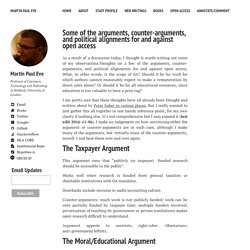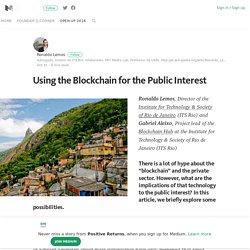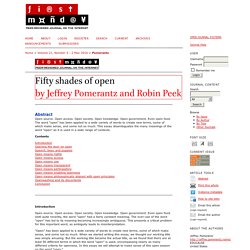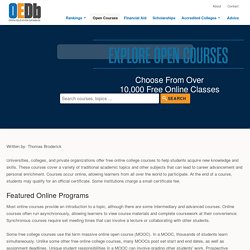

Some of the arguments, counter-arguments, and political alignments for and against open access. As a result of a discussion today, I thought it worth writing out some of my observations/thoughts on a few of the arguments, counter-arguments, and political alignments for and against open access.

What, in other words, is the scope of OA? Should it be for work for which authors cannot reasonably expect to make a remuneration by direct sales alone? Or should it be for all educational resources, since education is too valuable to have a price tag? I am pretty sure that these thoughts have all already been thought and written about by Peter Suber in various places. But I really wanted to just gather this all together in one handy reference point, for my own clarity if nothing else.
This argument runs that “publicly (or taxpayer) -funded research should be accessible to the public”. Works well when research is funded from general taxation or charitable institutions with OA mandates. Drawbacks include increase in audit/accounting culture. Works well across many disciplines. Added 2016-11-06. Using the Blockchain for the Public Interest – Positive Returns – Medium. Ronaldo Lemos, Director of the Institute for Technology & Society of Rio de Janeiro (ITS Rio) and Gabriel Aleixo, Project lead of the Blockchain Hub at the Institute for Technology & Society of Rio de Janeiro (ITS Rio) There is a lot of hype about the “blockchain” and the private sector.

However, what are the implications of that technology to the public interest? In this article, we briefly explore some possibilities. But first, a bit of context on the blockchain. The essence of the blockchain technology is trust. Our current trust model is based on a centralized or a decentralized model. However, the blockchain allows a new form of trust to emerge, which is not centralized (as in the case of governments), or decentralized (as in the case of the global financial system). The blockchain relies on cryptography to maintain a continuously growing database of records fully protected against tampering and revision (even by their operators). However, technology is never neutral. . - And more. Fifty shades of open. Open source.

Open access. Open society. Open knowledge. Open government. Even open food. A Great Cities Initiative of the University of Illinois at Chicago University Library.
OER Institutions. Accreditation of digital educ. MOOC Pearltrees. Blog posts on MOOCs & OERs. Blogs & MOOCs Lists. Journals & Academic Resources on Digital Education. Connected Learning & Digital Literacies. Digital Citizenship. Open Education Database. Written by: Thomas Broderick Universities, colleges, and private organizations offer free online college courses to help students acquire new knowledge and skills.

These courses cover a variety of traditional academic topics and other subjects that can lead to career advancement and personal enrichment. Courses occur online, allowing learners from all over the world to participate. At the end of a course, students may qualify for an official certificate. Some institutions charge a small certificate fee. Most online courses provide an introduction to a topic, although there are some intermediary and advanced courses. Some free college courses use the term massive online open course (MOOC). Benefits of Open Courses Free online college courses allow students to learn from home, a significant advantage for learners who prefer to eliminate a commute. In a free college course, learners can explore new academic topics without incurring high tuition costs.
Should You Take Open Courses?